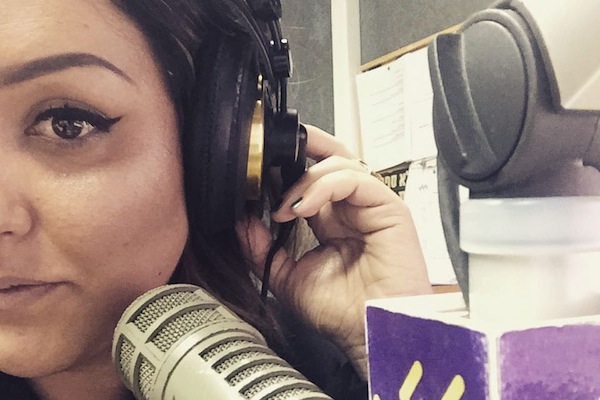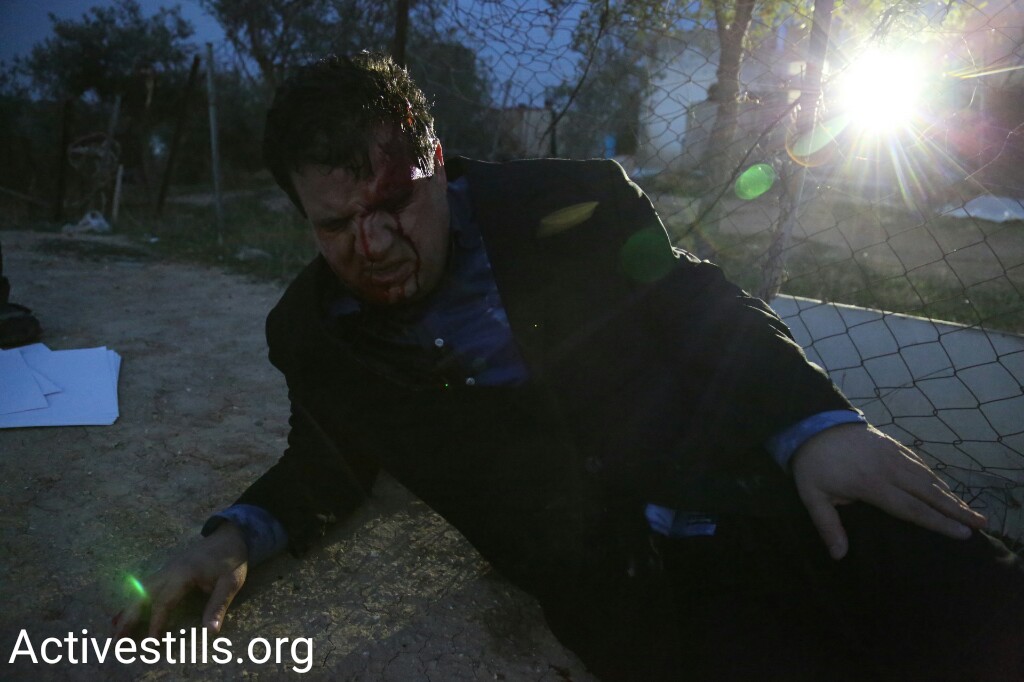Is there room in the Israeli public conversation for a Jewish radio program host to express a sense of identification with a Bedouin citizen of Israel?

Israel’s Army Radio fired a program host on Wednesday afternoon after she expressed empathy for a Bedouin man who was shot and killed during what police said was an attempted terrorist attack on them just hours earlier.
Khen Elmaleh was dismissed by Army Radio Commander Yaron Deckel after publishing a Facebook status sympathetic to a Bedouin driver whose car struck and killed 34-year-old police officer Erez Levy. “I would also run over a police officer if I were being removed from my home in order to make room for a town built for those more powerful than me,” she wrote.
Elmaleh was referring to the police shooting of Yaqub Musa Abu Qi’an, a resident of the unrecognized Bedouin village of Umm el-Hiran in the Negev. The incident occurred in the early hours of Wednesday morning as police forces were amassing to preside over the destruction of the village, which the government plans to replace with a town for Jewish citizens of Israel. Police claimed they opened fire on Abu Qi’an after he deliberately drove his vehicle toward a cluster of security forces at the scene.
But local residents and activists at the scene have vociferously denied the police narrative. According to eyewitnesses, Qi’an lost control of his vehicle after police opened fire. A video released by Channel 10 news later in the day appears to back the residents’ version. [Click here for more background on Umm al-Hiran]

After he fired Elmaleh, Army Radio Commander Yaron Deckel tweeted that those who support running over police have no place in the radio station. Elmaleh eventually deleted the status of her own accord.
Elmaleh, a prominent Tel Aviv-based DJ who hosts a weekly music program featuring popular Mizrahi and Arabic music, published her status alongside a famous photo of Shimon Yehoshua, a Mizrahi resident of the south Tel Aviv neighborhood Kfar Shalem, which was taken immediately after he was shot and killed by police at a protest against government evictions in 1982. Yehoshua’s home, like that of Abu Qi’an, was at imminent risk of demolition.

Elmaleh’s post was a sincere attempt at putting oneself in another’s shoes, but beyond that it also sought to draw a connection between the Bedouin struggle to remain on their land, and the decades-long Mizrahi struggle for public housing and against evictions. Perhaps Elmaleh thought that expressing empathy with those who have lost or are about to lose their homes — to try and imagine what it might feel like to fight a seemingly endless battle against a government that doesn’t exactly want you here — would strike a chord with Israeli Jews. Perhaps Elmaleh believed that there was solidarity to be had among the various groups living in Israel who are subject, day in and day out, to the brute force of the authorities.
But by early morning the politicians and media alike had already portrayed Abu Qi’an as an ISIS-supporting terrorist. Elmaleh, in effect, had crossed the Rubicon: she expressed support for the “enemy.”
By Wednesday evening, Elmaleh had published a lengthy response to her dismissal on Facebook, in which she fires back at the criticism leveled against her, and refuses to be painted as a “scandalous supporter of murder.” “I am not the story here,” she writes, “the story is anyone who has ever stood before eviction and destruction of his home… the issue is that Mizrahim, Bedouin, Arabs — the weakest sectors in the country — are helpless before large and violent forces, and they do not have enough power or a strong enough lobby to fight for their rights.”
“I do not support murder, and I will not let the headlines turn me into a supporter of murder,” Elmaleh continued, adding that today it may have been the Bedouin fighting for their rights, but “tomorrow it could be Mizrahi residents in south Tel Aviv. How easy is it to turn this whole discussion into one over a ‘vehicular attack.’
“I feel pain for everyone, all the victims of this situation, and I will never support murder. I identify with the frustration of those who stand helpless before the bulldozers, and the forces that threaten to destroy your home — whether spiritual or material — anywhere in this land.”


